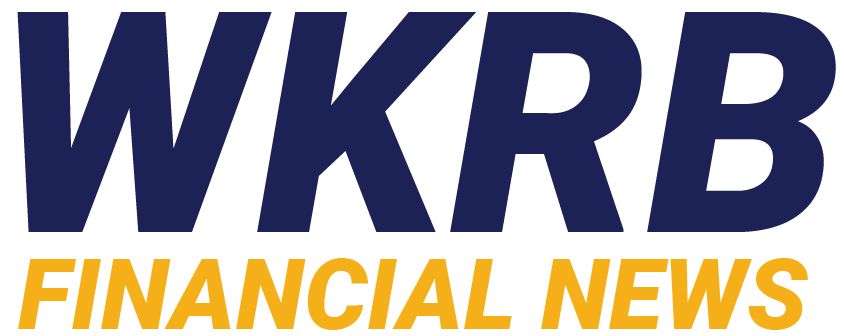
UnitedHealth Group, Eli Lilly and Company, Walmart, Johnson & Johnson, AbbVie, McKesson, and Boston Scientific are the seven Medical stocks to watch today, according to MarketBeat’s stock screener tool. Medical stocks refer to shares of companies that operate in the healthcare industry, particularly those involved in pharmaceuticals, biotechnology, medical devices, and related sectors. These stocks allow investors to gain exposure to advancements in medical technology and healthcare services, though they can also be subject to regulatory challenges and market volatility. These companies had the highest dollar trading volume of any Medical stocks within the last several days.
UnitedHealth Group (UNH)
UnitedHealth Group Incorporated operates as a diversified health care company in the United States. The company operates through four segments: UnitedHealthcare, Optum Health, Optum Insight, and Optum Rx. The UnitedHealthcare segment offers consumer-oriented health benefit plans and services for national employers, public sector employers, mid-sized employers, small businesses, and individuals; health care coverage, and health and well-being services to individuals age 50 and older addressing their needs; Medicaid plans, children's health insurance and health care programs; and health and dental benefits, and hospital and clinical services, as well as health care benefits products and services to state programs caring for the economically disadvantaged, medically underserved, and those without the benefit of employer-funded health care coverage.
UnitedHealth Group stock traded down $15.50 during midday trading on Friday, hitting $524.94. 9,914,705 shares of the stock were exchanged, compared to its average volume of 4,261,982. The stock’s 50-day simple moving average is $509.24 and its 200 day simple moving average is $542.37. UnitedHealth Group has a fifty-two week low of $436.38 and a fifty-two week high of $630.73. The company has a current ratio of 0.83, a quick ratio of 0.91 and a debt-to-equity ratio of 0.74. The stock has a market capitalization of $480.17 billion, a price-to-earnings ratio of 33.87, a PEG ratio of 1.37 and a beta of 0.62.
Read Our Latest Research Report on UNH
Eli Lilly and Company (LLY)
Eli Lilly and Company discovers, develops, and markets human pharmaceuticals worldwide. The company offers Basaglar, Humalog, Humalog Mix 75/25, Humalog U-100, Humalog U-200, Humalog Mix 50/50, insulin lispro, insulin lispro protamine, insulin lispro mix 75/25, Humulin, Humulin 70/30, Humulin N, Humulin R, and Humulin U-500 for diabetes; Jardiance, Mounjaro, and Trulicity for type 2 diabetes; and Zepbound for obesity.
LLY traded down $51.53 during trading hours on Friday, reaching $737.56. The company’s stock had a trading volume of 5,289,016 shares, compared to its average volume of 3,322,077. The business’s 50-day moving average is $848.36 and its 200-day moving average is $832.44. The company has a debt-to-equity ratio of 2.00, a current ratio of 1.15 and a quick ratio of 0.97. The stock has a market cap of $699.33 billion, a PE ratio of 62.99, a P/E/G ratio of 1.40 and a beta of 0.34. Eli Lilly and Company has a fifty-two week low of $711.40 and a fifty-two week high of $972.53.
Read Our Latest Research Report on LLY
Walmart (WMT)
Walmart Inc. engages in the operation of retail, wholesale, other units, and eCommerce worldwide. The company operates through three segments: Walmart U.S., Walmart International, and Sam's Club. It operates supercenters, supermarkets, hypermarkets, warehouse clubs, cash and carry stores, and discount stores under Walmart and Walmart Neighborhood Market brands; membership-only warehouse clubs; ecommerce websites, such as walmart.com.mx, walmart.ca, flipkart.com, PhonePe and other sites; and mobile commerce applications.
NYSE WMT traded down $4.17 during trading hours on Friday, reaching $83.09. The company had a trading volume of 36,185,150 shares, compared to its average volume of 17,155,387. The company has a current ratio of 0.82, a quick ratio of 0.23 and a debt-to-equity ratio of 0.40. The stock has a market capitalization of $666.12 billion, a P/E ratio of 34.48, a price-to-earnings-growth ratio of 4.42 and a beta of 0.69. The stock has a 50-day moving average of $94.01 and a 200 day moving average of $89.52. Walmart has a 1-year low of $58.56 and a 1-year high of $105.30.
Read Our Latest Research Report on WMT
Johnson & Johnson (JNJ)
Johnson & Johnson is a holding company, which engages in the research, development, manufacture, and sale of products in the healthcare field. It operates through the Innovative Medicine and MedTech segments. The Innovative Medicine segment focuses on immunology, infectious diseases, neuroscience, oncology, cardiovascular and metabolism, and pulmonary hypertension.
NYSE JNJ traded down $6.79 on Friday, reaching $153.03. The stock had a trading volume of 16,594,687 shares, compared to its average volume of 7,796,002. Johnson & Johnson has a 12-month low of $140.68 and a 12-month high of $169.99. The stock has a fifty day moving average price of $159.75 and a two-hundred day moving average price of $155.91. The firm has a market capitalization of $368.77 billion, a price-to-earnings ratio of 23.01, a P/E/G ratio of 2.56 and a beta of 0.47. The company has a quick ratio of 0.86, a current ratio of 1.11 and a debt-to-equity ratio of 0.43.
Read Our Latest Research Report on JNJ
AbbVie (ABBV)
AbbVie Inc. discovers, develops, manufactures, and sells pharmaceuticals worldwide. The company offers Humira, an injection for autoimmune and intestinal Behçet's diseases, and pyoderma gangrenosum; Skyrizi to treat moderate to severe plaque psoriasis, psoriatic disease, and Crohn's disease; Rinvoq to treat rheumatoid and psoriatic arthritis, ankylosing spondylitis, atopic dermatitis, axial spondyloarthropathy, ulcerative colitis, and Crohn's disease; Imbruvica for the treatment of adult patients with blood cancers; Epkinly to treat lymphoma; Elahere to treat cancer; and Venclexta/Venclyxto to treat blood cancers.
Shares of ABBV stock traded down $15.06 on Friday, hitting $186.58. The stock had a trading volume of 13,498,167 shares, compared to its average volume of 5,780,688. The company’s 50 day moving average price is $200.61 and its 200-day moving average price is $189.24. AbbVie has a 1 year low of $153.58 and a 1 year high of $218.66. The firm has a market capitalization of $330.06 billion, a P/E ratio of 77.74, a P/E/G ratio of 1.62 and a beta of 0.61. The company has a debt-to-equity ratio of 17.94, a current ratio of 0.66 and a quick ratio of 0.55.
Read Our Latest Research Report on ABBV
McKesson (MCK)
McKesson Corporation provides healthcare services in the United States and internationally. It operates through four segments: U.S. Pharmaceutical, Prescription Technology Solutions (RxTS), Medical-Surgical Solutions, and International. The U.S. Pharmaceutical segment distributes branded, generic, specialty, biosimilar and over-the-counter pharmaceutical drugs, and other healthcare-related products.
NYSE:MCK traded down $34.52 on Friday, reaching $682.41. 3,150,691 shares of the company’s stock were exchanged, compared to its average volume of 858,582. The business has a fifty day moving average of $633.37 and a 200-day moving average of $584.91. McKesson has a 52-week low of $464.42 and a 52-week high of $728.32. The firm has a market capitalization of $85.52 billion, a price-to-earnings ratio of 31.25, a price-to-earnings-growth ratio of 1.29 and a beta of 0.49.
Read Our Latest Research Report on MCK
Boston Scientific (BSX)
Boston Scientific Corporation develops, manufactures, and markets medical devices for use in various interventional medical specialties worldwide. It operates through two segments, MedSurg and Cardiovascular. The company offers devices to diagnose and treat gastrointestinal and pulmonary conditions, such as resolution clips, biliary stent systems, stents and electrocautery enhanced delivery systems, direct visualization systems, digital catheters, and single-use duodenoscopes; devices to treat urological conditions, including ureteral stents, catheters, baskets, guidewires, sheaths, balloons, single-use digital flexible ureteroscopes, holmium laser systems, artificial urinary sphincter, laser system, fiber, and hydrogel systems; and devices to treat neurological movement disorders and manage chronic pain, such as spinal cord stimulator system, proprietary programming software, radiofrequency generator, indirect decompression systems, practice optimization tools, and deep brain stimulation system.
BSX traded down $8.73 during trading hours on Friday, hitting $89.78. 22,572,180 shares of the company’s stock were exchanged, compared to its average volume of 6,184,788. The firm has a market cap of $132.78 billion, a P/E ratio of 71.82, a price-to-earnings-growth ratio of 2.79 and a beta of 0.77. Boston Scientific has a 12-month low of $66.80 and a 12-month high of $107.17. The company has a current ratio of 1.08, a quick ratio of 1.02 and a debt-to-equity ratio of 0.41. The firm has a 50 day moving average of $101.90 and a 200 day moving average of $93.55.
Read Our Latest Research Report on BSX
See Also
- MarketBeat’s Top Five Stocks to Own in April 2025
- Conagra Stock Could Thrive as Tariffs Hit Other Sectors
- Grocery Costs and Tariffs Now Top of Mind in Everyday Conversations, New Survey Finds
- Spotify Stock Eyes Double-Digit Upside—Is Now the Time to Buy?
- Cintas Ends UniFirst Talks—What’s Next for UNF Stock?
- 3 Reasons Wall Street Is Backing Braze Stock Right Now
